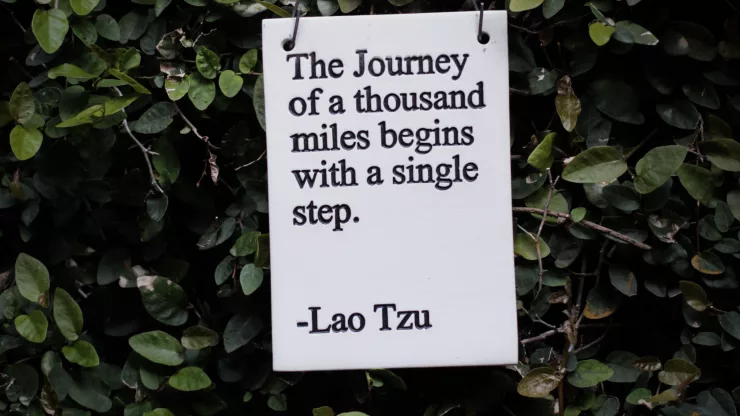Life is a journey filled with transitions, and every transition brings its own set of challenges.
Whether it is starting a new job, moving to a new city, or ending a relationship, life transitions can be difficult to navigate.
However, with the right strategies and support, you can make the journey of a thousand miles more manageable.
In this article, we will explore the different types of life transitions, how they impact us, and strategies for coping with them.
Jump to Section
Understanding Life Transitions and Their Impact
Life transitions are significant changes that occur in our lives, and they can be positive or negative. Some common life transitions include:
- Starting a new job
- Getting married or divorced
- Moving to a new city or country
- Having a child
- Losing a loved one
These transitions can have a profound impact on our emotional, physical, and mental well-being. They can cause stress, anxiety, and uncertainty, and it is important to recognize and acknowledge these feelings.
Strategies for Coping with Life Transitions
Dealing with life transitions can be overwhelming, but there are strategies you can use to manage the process. Here are some tips:
- Accept the change: Acknowledge that change is a natural part of life and that it can bring new opportunities.
- Focus on the present: Try to stay in the moment and focus on what you can control.
- Seek support: Talk to friends, family, or a therapist to get emotional support.
- Take care of yourself: Practice self-care activities such as exercise, meditation, or journaling.
- Set goals: Create achievable goals to help you stay focused and motivated.
Embracing Change and Finding New Opportunities
While life transitions can be difficult, they can also bring new opportunities. Here are some ways to embrace change and find new opportunities:
- Learn new skills: Take advantage of the transition to learn new skills or pursue a new hobby.
- Meet new people: Join a club or group to meet new people and make new connections.
- Explore new places: If you have moved to a new city or country, take the opportunity to explore and discover new places.
- Re-evaluate your life: Use the transition as a chance to reflect on your life and make any necessary changes.
Support Systems and Resources for Life Transitions
During life transitions, it is important to have a support system in place. Here are some resources that can help:
- Friends and family: Lean on your loved ones for emotional support.
- Therapists: Seek professional help if you need additional support.
- Support groups: Join a support group for people going through similar transitions.
- Online resources: Use online resources such as blogs, forums, or podcasts to get information and support.
Moving Forward: Navigating the Next Chapter
As you navigate through a life transition, it is important to remember that it is a process. Here are some tips for moving forward:
- Take it one day at a time: Don’t try to rush the process.
- Celebrate small victories: Recognize and celebrate small achievements along the way.
- Be patient: Be patient with yourself and the process.
- Stay positive: Focus on the positives and look for opportunities.
FAQ
How long does it take to adjust to a life transition?
The length of time it takes to adjust to a life transition varies from person to person and depends on the nature of the transition. It can take weeks, months, or even years to fully adjust to a significant life change.
What are some signs that I am struggling to cope with a life transition?
Some signs that you may be struggling to cope with a life transition include:
- Feeling overwhelmed or anxious
- Difficulty sleeping
- Loss of interest in activities you used to enjoy
- Increased irritability or anger
- Changes in appetite or weight
When should I seek professional help?
If you are experiencing severe emotional distress or feel like you are not coping well with a life transition, it may be time to seek professional help. A therapist can help you develop coping strategies and provide support during this challenging time.

With a deep passion for personal development, Ben has dedicated his career to inspiring and guiding others on their journey towards self-improvement.
His love for learning and sharing knowledge about personal growth strategies, mindfulness, and goal-setting principles has led him to create My Virtual Life Coach.
Contact Ben at [email protected] for assistance.




